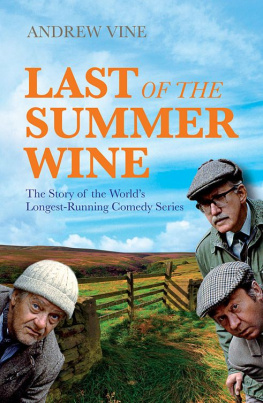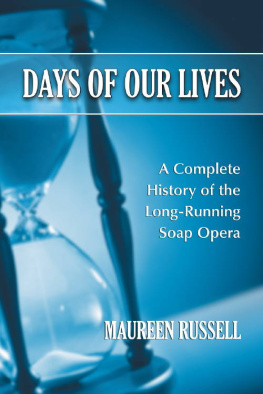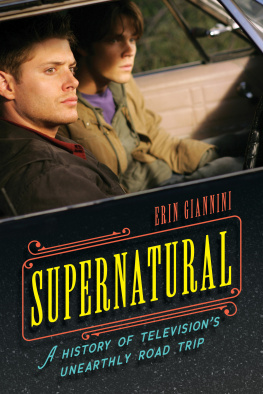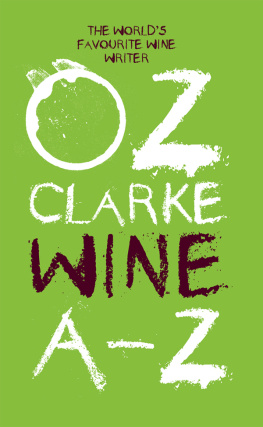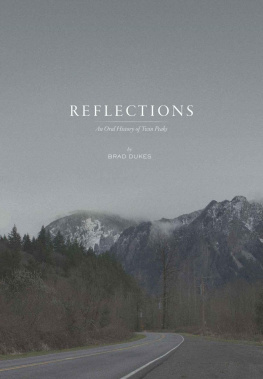You cant help getting older, but you dont have to get old.
It takes a long time to become young.
T HREE MEN ARE pausing for a breather at the top of the hill, silhouetted against a moorland skyline of tough green grass and thorny yellow gorse and springy purple heather. The sunny day stretches before them yet to be filled, but for now there is time enough to dawdle, to find a rocky outcrop to sit upon, or lie in the brush with their toecaps pointing at a cloudless sky and talk, remembering and reminiscing on schooldays, wartime, friends half-forgotten or newly recalled, even unlikely loves past and still hoped for. Summer is still here, but its best days are past, and so are the best days of these men who nevertheless still dream and plan and adventure, mindful that winters chill will soon draw on, but preferring to turn their thoughts to prolonging this golden, balmy moment while ever the sun is still high in the sky. They are an ill-assorted lot: one tall, authoritarian, even pompous, convinced of his own superiority and earnest in his desire to improve his companions; the second is endlessly self-effacing, shy, nervous, cowardly, cautious, yet redeemed from ineffectuality by a sly wit and an acerbic view of the world. The less said about the third, the better; he is an utter disgrace, uncouth, unshaven, unkempt, his trousers barely less horrifying than the unspeakable thing kept in a matchbox among the bits of string and pencil stubs that fill his pockets, a short, animated, skipping, perky, compost heap of a man, ageing but still with the mischievous spark of the naughty boy of the form, in wellington boots and knitted beanie hat, whose innocence lingers, even when his thoughts turn to towards romance with one whose charms are unfathomable to all but him.
This is a landscape that invites reflection, and for these three its tranquillity is filtered through their own preoccupations. For the tatty one, that means betting on the horses and cadging cigarettes: Do you know, its so quiet up here, you could hear the rustle of a fag packet being handed round. For the timid and thoughtful one, it is the existential insignificance of man in this terrain, which was born long before he existed and will survive him when he has gone, allied to his capacity to annoy while he remains: When you come up here, you realise how small a creature man is, and you wonder why hes standing on other peoples feet. For the third, relentless in his desire to remake an inglorious military career in retrospect, all is viewed through the prism of the great commander of fighting men he never was nor ever could have been: Every time I come here, the spirit soars. You cant help thinking what a wonderful place it would be to set up a machine gun. Give me a small squad of hand-picked men, and I could defend this place indefinitely.
Chatting and bickering, they range far and wide over these summits and valleys. Time is of little consequence; life has passed by, relinquishing its claims on them. All are single, unmarried, widowed or abandoned by a wife who gave up in exasperation, and if there is perhaps the faintest undertone of loneliness in their friendship, the hills where they amble are an ideal place to be alone together. These are the Pennines, the great range of peaks running through the north of England, that in late summer are among the most glorious landscapes in the world, and these mens corner of them is Yorkshire, a feisty, plain-speaking, sometimes dour, more often generous, honest and hospitable county in which grim vistas of mills, mines and manufacturing give way to this beauty.
Up here on these high moors, they are the masters of their own fate, even heroic in their own small way, inventors of schemes that will see them shrug off the years and slide down the hillsides on tin trays or in barrels, or career along a road on a runaway sofa or a three-seater bicycle as they resolutely refuse to grow old. That will change when they descend in search of a cup of tea in the caf they frequent, or return to the scruffs reprehensible home. There, they run the gauntlet of a category of woman to be feared and obeyed, large, bustling and possessed of a tone of voice that brooks no insubordination in the ranks of mere men. These doughty northern wives, veterans and unquestioned victors of domestic trench warfare, are as much the backbone of their world as the Pennines are of this part of Britain, and no less flinty or immovable; indubitably the stronger sex, they fume at the idiocies of husbands: Why is it that a million years of natural selection has produced a breed of men in these parts perfectly adapted to uselessness? Here is a hopelessly unequal battle of the sexes. All the weaponry is with the women; if withering put-downs and barked commands will not do, a sweeping brush or tin tray are there to shoo an undersized lecherous ratbag away from stone steps or caf door back to his ferrets. The heavy armour is pinnies, curlers or stockings more wrinkled than a Chinese lantern, and in the face of its advance, the mens only options are surrender or retreat. The skirmishes stretch across decades; the combatants pass from their fifties into their eighties, yet still take the field with undiminished vigour.
This was the landscape of a unique, absurdist, make-believe comic world through which these three mismatched friends journeyed, as far over the hill from real life as Shangri-La or Oz, even though its peaks and country lanes and cobbled streets were there to be found in Yorkshire by countless thousands who came looking for them. The imaginations of millions more were caught by it, not with the cloying nostalgia or soft-hearted sentiment of old men maundering on the past, but with laughter born of an utterly distinctive, pathos-free humour that thumbed its nose at conventional notions of ageing as it encompassed the most delicate linguistic subtlety and uproariously knockabout slapstick. It made its own land, its own era, and its own surreal reality, all of them off beat. Even its title, Last of the Summer Wine, was offbeat.
The story of Last of the Summer Wine is one of the most extraordinary in the history of television comedy. No other series, in Britain or elsewhere, has come close to rivalling its longevity 37 years from its first screening to its last, spanning 295 episodes, all of them penned by a single writer, Roy Clarke, who would still, in his eightieth year, be looking up from his desk and out of the window at a stretch of Yorkshire countryside very different from the landscape of his imagination, dreaming up new adventures for three men on a hill. It is a story of a unique comic vision, of a slow climb to success, of how fame and adulation came knocking late for a faded film star struggling for work and two journeymen actors, of how on-screen chemistry was mirrored by off-screen antipathy, of innovation that changed the face of television, of how a show outlived fads and fashions to stand alone as the sole survivor of a golden age of entertainment. It is also the story of a place, of how the fortunes of a dilapidated mill town that nobody much noticed were transformed in a manner its people could never have imagined.
The long shot of the trio silhouetted against the skyline is the quintessential Summer Wine scene, but it was a longer shot still that the series Clarke invented would develop into the national institution it became. He disliked its premise, struggled to make it work and did not rate its chances of developing into anything. There was opposition to casting the actor who would bring to life one of the most beloved of all comic characters, and the show faced trial after trial as ageing cast members died or became too frail to carry on. As the years passed, it endured indifference and even hostility from its masters at the BBC, suffering the fate of being rendered invisible by its omnipresence, its excellence and individuality resolutely ignored by executives and critics who lavished praise on shows that came and went in what was, by comparison to

